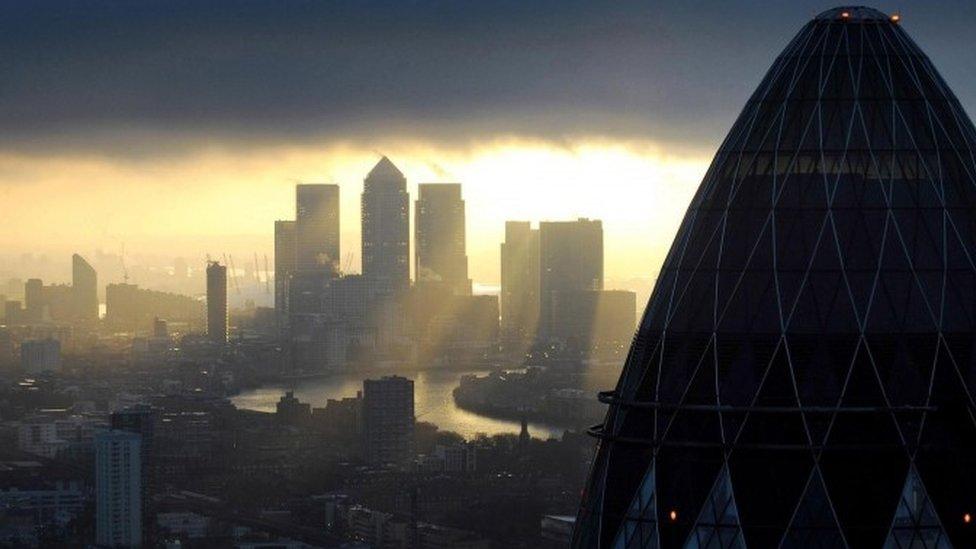An EU dinner with Brexit for each course
- Published
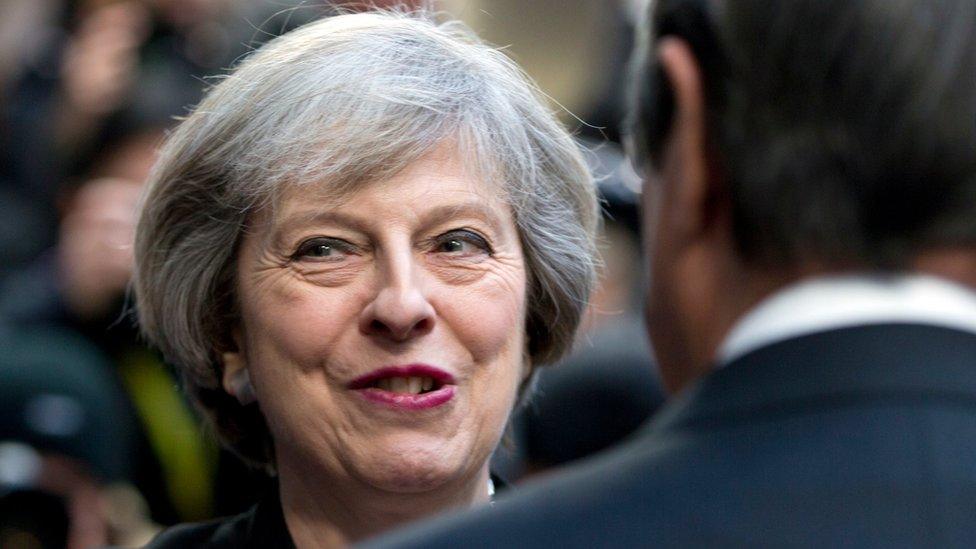
Theresa May is in Brussels for a meeting of the European Council
It's not a snub.
Or a rule-breaker.
Or a witches' cauldron around which anti-UK tactics will be plotted.
Theresa May doesn't invite the European Union to her Brexit strategy discussions - as you might expect - and the EU doesn't invite her to theirs, for the very same reasons.
As a full member (still) of the EU, the UK prime minister is included - as she must be - in today's formal summit of all 28 EU leaders.
Mrs May will be present for discussions on migration, Aleppo, Ukraine trade and Russia sanctions.
But once that is over and summit press conferences have been held, EU leaders will meet without the UK for an "informal dinner" where the menu reads: Brexit from hors d'oeuvres to dessert.
Commission as Brexit negotiator
The timing of this dinner is a diary convenience.
Getting 27 world leaders round one table isn't easy, especially when a number of them are fighting for political survival at home.
So, while together in Brussels anyway for the summit, Chancellor Angela Merkel, President Francois Hollande et al agreed to stay a bit longer to talk Article 50, the by-now long-awaited triggering by the UK of formal Brexit talks, that Mrs May promises early next year.
Dinner tonight, my sources tell me, will be all about procedure.
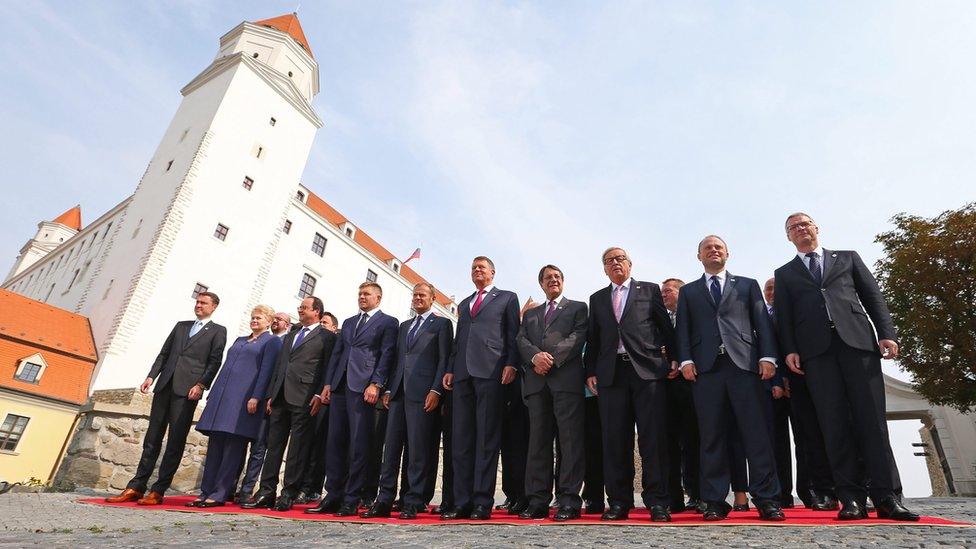
But she will not be at a dinner for the "EU27" (pictured in Bratislava) this evening
The EU27 (as the leaders minus the UK now call themselves) will formally re-confirm the European Commission as the lead Brexit negotiator for the whole European Union.
Make no mistake, in such a complex and politically important process, Germany, France and other EU countries will keep a very close eye on the Commission but they know it is the only EU institution with the manpower, the expertise (it leads all EU trade negotiations) and a legal mandate (as so-called guardian of EU Treaties) for detailed negotiations.
So much for Brexit procedure; as for content over tonight's nibbles, my sources insist there's little to discuss until the UK government makes a firm commitment to the kind of Brexit it wants.
UK Brexit Secretary, David Davis, for example, just came up with four possible scenarios as regards the European Customs Union.
But EU leaders are clearly nervous.
Brexit has become a political football as populist movements gather strength across Europe.
Many leaders are also irritated with the perceived arrogance of the UK government - whether it's the foreign secretary insisting that EU Single Market rules will be bent for the UK or the Brexit Secretary suggesting an interim trade deal might be accepted out of kindness to the EU, rather than the other way round, which is the perspective of Brussels.
Over and again I'm told: we never wanted the UK to leave. It chose to go. We now need this over and done with so Brexit no longer hangs over all EU affairs.
Dinner-table bickering
EU governments insist they want an end deal that's good for everyone. They're keen to keep Britain close. But they do expect the UK to respect EU law. That means, as we've heard: no access to the Single Market if the UK won't accept the right of EU citizens to apply live and work in the UK.
On this point, EU countries and the Commission sing from the same hymn sheet.
They all benefit from the Single Market and they worry about weakening it.
But, desperate as they are to insist that theirs is a fully united front, there will undoubtedly be Brexit bickering amongst tonight's dinner guests.
One high-level source described Article 50 to me as "the mother of all complexities".
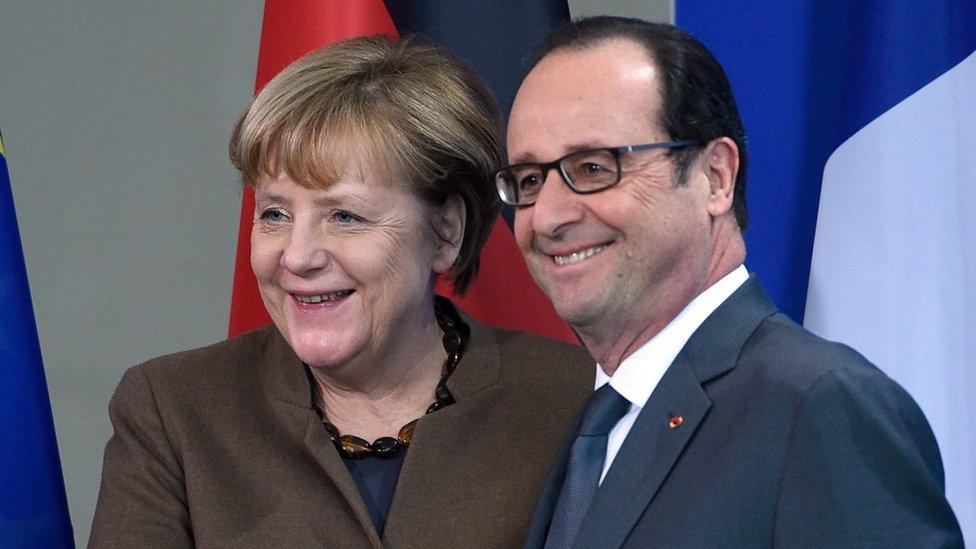
It is not a snub, but the only chance to get all 27 heads of state - including Angela Merkel and Francois Hollande - around the table together
Some European Prime Ministers (particularly from the Baltic States and central Europe) worry the Commission will be too hard line. They want open talk of a transition deal and believe Article 50 proceedings should be about the future EU-UK relationship, not just the divorce.
Many EU leaders chatting about Brexit tonight know they're unlikely to see the process through.
Elections are fast-approaching in France, the Netherlands and Germany. Possibly in Italy too.
Today the BBC revealed a memo to the government by a high level British civil servant warning Brexit could take years and even then be voted down by an EU country or institution.
Something the EU warned about from the start.
Reliable on Russia
Still, a Brussels source said to me it'll be far speedier if hard-line Brexiteers win the day and the UK reverts to WTO trade rules.
No transition deal needed then, he said.
Another Brussels voice believed Russia sanctions discussions at today's EU summit would show Theresa May that she has more in common with the EU than she realises.
The year 2017 is going to be a lot about Russia, my contact insisted.
"Prime Minister May will find us a lot more Russia-reliable than the soon-to-be US president, Donald Trump."
"Though the UK never appreciated its EU relationship as 'special'," he noted (not without a note of bitterness).
- Published15 December 2016
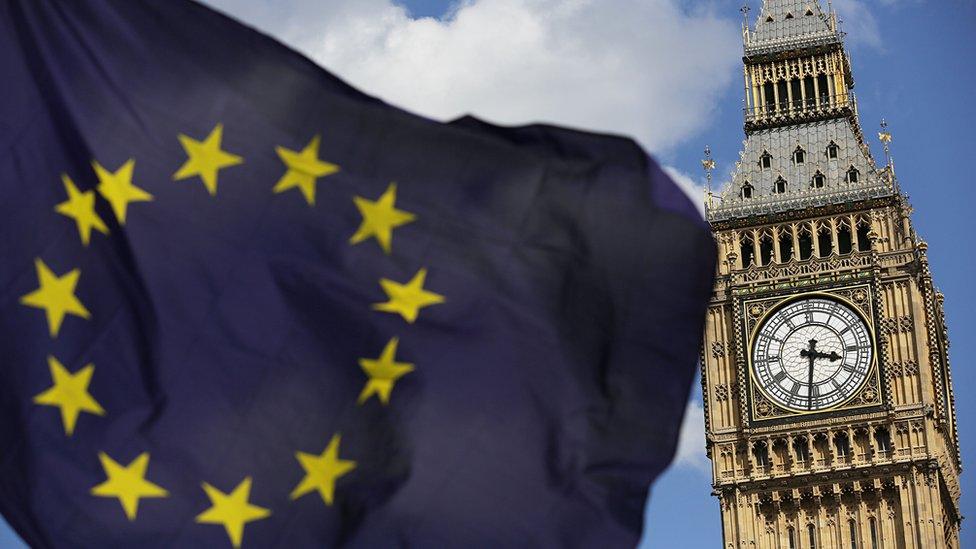
- Published15 December 2016
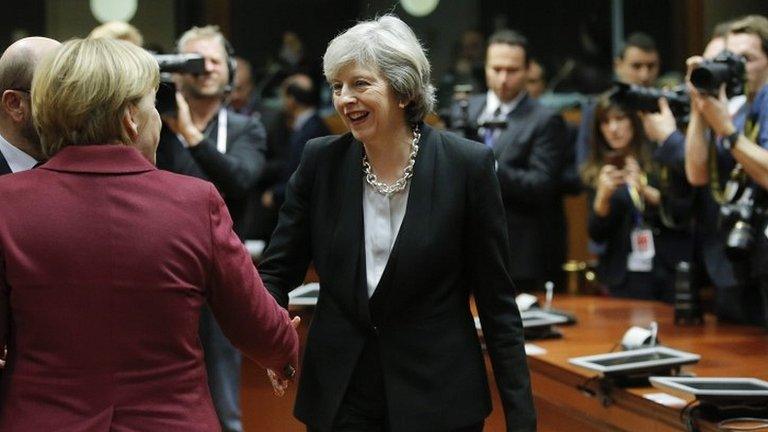
- Published15 December 2016
